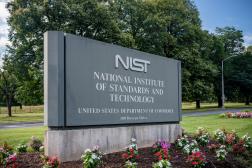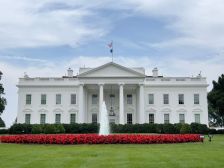Hurd: U.S. can triumph in ‘battle’ for AI dominance against China

The United States has the capability to beat China in the race to advance artificial intelligence technology — a mission that is critical to national security — according to Rep. Will Hurd.
“We need to operate as if we’re behind. But here’s what I can say: the U.S can win. We can win this battle,” the Texas Republican said during said Tuesday during FedTalks, presented by FedScoop.
Hurd and Rep. Robin Kelly, D-Ill., introduced a resolution to create a national artificial intelligence strategy in September, after working with the Bipartisan Policy Center to develop policy recommendations for workforce modernization, national security, research and development, and ethics guidelines. Hurd said the strategy will enable the country to remain the leader in advanced technology.
“We know that the government of China doesn’t care about civil liberties. We know that they don’t care about privacy. And so are we going to develop these new tools that are going to decide not just the American economy, but the economy of the whole world for the rest of the century? And so that’s the struggle,” said Hurd, the ranking member on the Subcommittee on Intelligence Modernization and Readiness within the House Permanent Select Committee on Intelligence.
In total, the resolution has 81 recommendations, which Hurd said can be introduced as 81 separate bills during the next congressional session. One major aspect of advancing AI technology is federal funding, which Congress controls. The Chinese government sees the technology as paramount to its military and industrial power and is currently outpacing the United States in terms of research and development investments, according to an annual Department of Defense report to Congress about the country’s military developments.
“We have to fix that, and get federal funding for some of these basic areas of support,” he said.
Hurd said the United States is poised to beat out the competition for AI dominance because of its open markets, liberal democracy, and emphasis on entrepreneurship. The key is to attract the best talent from around the world, prepare students for emerging AI jobs, and “double down” on research.
“The U.S. has been a leader in advanced technology since the end of World War II,” he said. “And that is what has led to our success. We’ve got to make sure we stay focused.”






